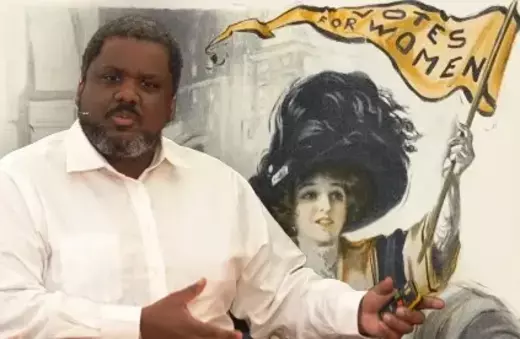From Russia claiming that ‘gender theory’ is a threat to national security, to the Vatican warning it would undermine civilisation itself, an ‘anti-gender ideology’ movement is taking root. Conventional wisdom holds that this is a culture war aiming to distract our attention from more important issues. Such a view is mistaken argues one of the most prominent philosophers today, Judith Butler. In this exclusive extract of their newly released book Who’s Afraid Of Gender?, Butler argues that anti-gender ideology is a direct response to displacement caused by neoliberalism.
Judith Butler will be appearing virtually to give a talk on their new book titled ‘Fascist Passions?’ for April 8th upcoming IAI Live here. Book your tickets now!
To think of the anti-gender movement only as a “culture war” would be mistaken. The movement is clearly responding to economic formations that have left many people radically insecure about their futures, sensing that the conditions of their lives are deteriorating. The Polish scholars Agnieszka Graff and Elżbieta Korolczuk have argued that we make a mistake by imagining that critics of gender are simply cultural conservatives bearing deep feelings about preserving the traditional family. They are, in the view of these authors, actually responding to the displacement and insecurity that result from neoliberalism. They discuss the case of Poland and adjacent Eastern European countries: “Anti-gender actors consistently position themselves as warriors for justice and defenders of ordinary people against the corporate greed of global capital. Thus, they list among their enemies not only transnational institutions such as the UN and World Health Organization, but also iconic figures of global capitalism such as George Soros and Bill Gates, pharmaceutical companies seeking to sell contraception and the medical establishment offering abortion and IVF.” They oppose forms of individualism, privatization, and the destruction of public services brought about by an austerity politics understood to be imposed by the European Union and major banking institutions. It is not only the Left that opposes the ravaging effects of neoliberalism, including the saturation of market values into everyday life. Graff and Korolczuk argue:
In Eastern and Central Europe, the neoliberal revolution—the dismantling of the socialist welfare state with its generous universal health care system, job security and state support for families—took place as part of the systemic transformation in the 1990s and was accompanied by a re-traditionalization of gender roles . . . The important difference between the post-socialist and the American contexts is that whereas in the U.S. the return to “family values” was conceived of mostly in terms of strengthening individual responsibility and was thus fully compatible with the neoliberal ethos, in post-socialist countries the neoliberal revolution was experienced by many as a destruction of community and tradition.
 SUGGESTED READING
Consciousness has no gender
By Olivia Fane
SUGGESTED READING
Consciousness has no gender
By Olivia Fane
In the anti–gender ideology movement, however, conservative traditionalists (distinct from neoconservatives) emerge as a political force opposed to neoliberalism, and in Eastern Europe that opposition focuses on forms of individualism (and its entrepreneurial imperative) that are seen to shred social relations and traditional ties. As social services are withdrawn and dismantled under neoliberalism (and as the ideal of social welfare is dissolved in favor of privatized markets), the family becomes all the more important, overdetermined and overburdened as the proxy social state.
___
The opposition to economic devastation, debt, and neoliberal saturation of market values in everyday life was thus linked to the opposition to “gender,”
___





















Join the conversation